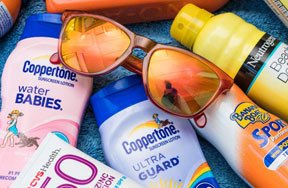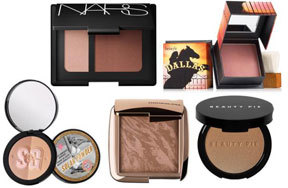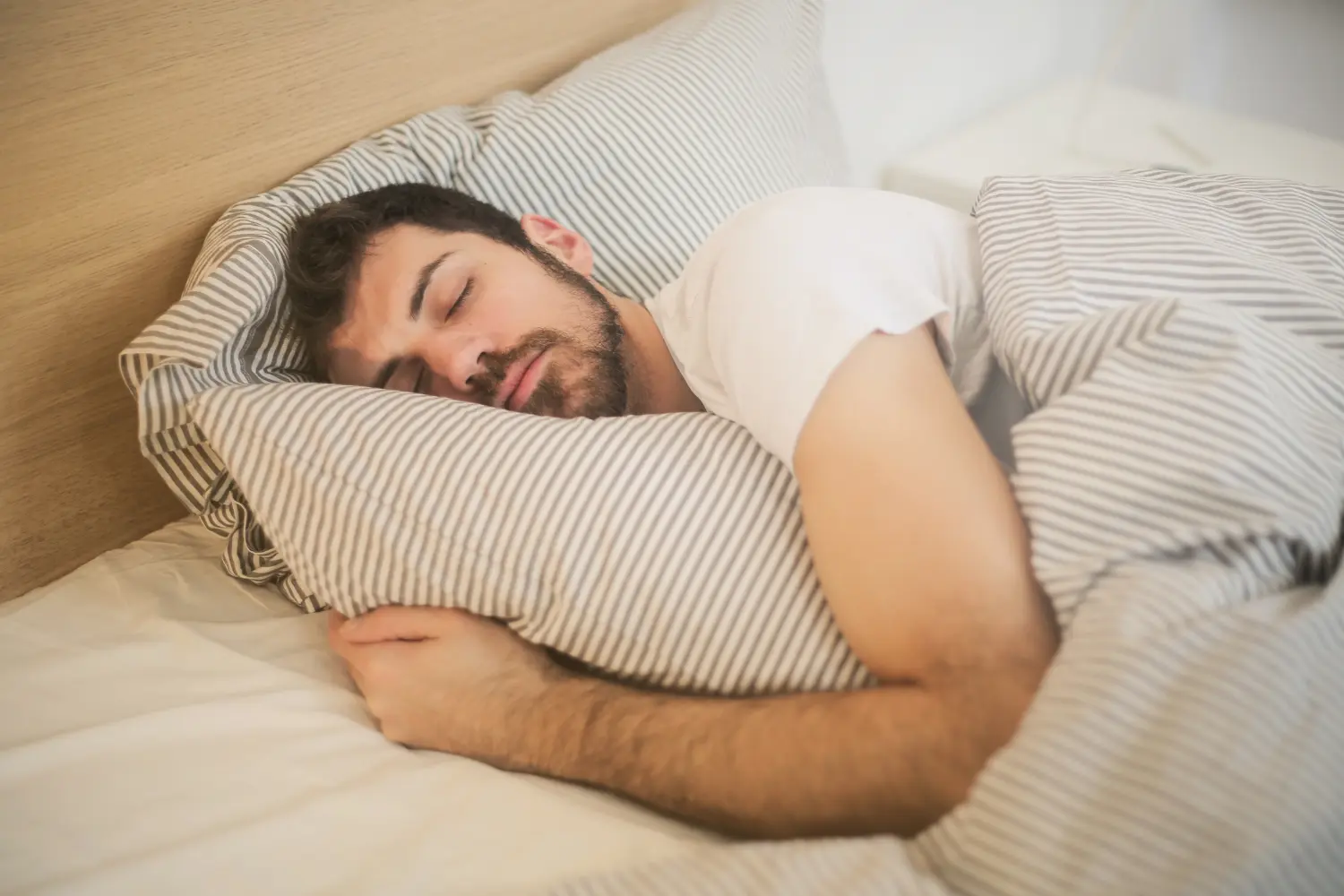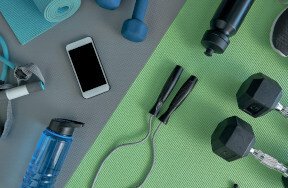Are breakouts, zits, blotchy skin, and dry skin becoming a problem for you? If so, you’re not alone. Taking care of your skin was once as simple as giving it a quick wash and remembering to apply sunscreen. As you enter your teen years and beyond, skin care takes on a whole new level. Some days your skin looks glowing and fantastic, and other days you wake up with a giant pimple or blotchy skin and can’t figure out why.
Beauty Really Does Come From Within
The old saying “it’s what’s on the inside that counts” is really true when it comes to taking care of your skin, especially when you’re talking about water. Stay hydrated by drinking at least 8 8-ounce glasses of water every day to keep your skin healthy. It’s also great for your muscles, energy level, and digestive system, too.
Getting enough sleep is another often overlooked skin care secret. If you’re not getting 9-11 hours of sleep a night, you’re not only shortchanging your skin, you’re also not giving your brain the time it needs to recharge and you’re not giving your body the time it needs to grow.
Stress less to have healthier skin. Studies show that high stress levels affect your hormone levels and that has a direct effect on your skin, causing breakouts, irritations, dark circles under your eyes, and blotchy patches.
Eating a good mix of fruits and vegetables not only hydrates your skin and keeps your body working properly, it's also great for nourishing your skin, giving you a healthy glow and a clear complexion.
On the other hand, smoking and tanning have a negative effect on your body's chemistry and have a direct effect on your complexion as well as your overall health. Just one more reason to kick those habits and choose a healthier addiction like exercise!
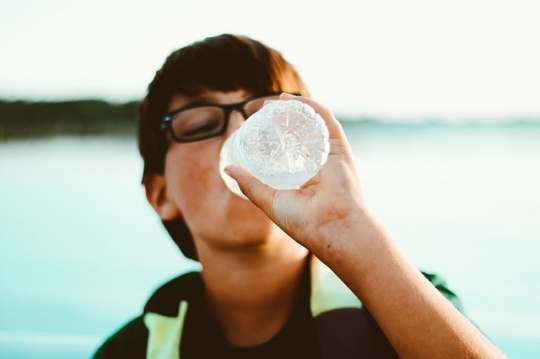 Healthy skin starts with staying hydratedCourtesy of Max Pixel
Healthy skin starts with staying hydratedCourtesy of Max Pixel
The Best Products For Healthy Skin
When you have a bad skin day, it’s natural to want to throw every skin care product in your bathroom at it to make it go away, but resist the urge! More products are not better! You only need a couple of simple products to cleanse your skin without irritating it:
-
Mild, store-bought cleanser washes away dirt, sweat, sunscreen and makeup.
-
Face wash should be something you apply to a wet face and wash off. Cleansing cloths are good for removing makeup before you wash, but they don't take the place of actually washing your face.
- Clean and Clear, Nutrogena, Garner Fructis, and Cetaphil all have formulas that are light on chemicals, gentle on skin, and tough on dirt.
-
Face wash should be something you apply to a wet face and wash off. Cleansing cloths are good for removing makeup before you wash, but they don't take the place of actually washing your face.
-
Toner cleans everything your face wash misses, adds moisture to your skin, removes dead skin, clears up blotchy patches, and removes extra oil from your skin
-
Ingredients to look for: Rosewater adds moisture to dry skin. Aloe soothes sensitive skin. Tea Tree Oil and Witch Hazel are good for acne prone skin. Avoid toners that have alcohol as one of the first ingredients, as it will dry out your skin without adding moisture back in.
- Burt's Bees Rosewater Toner for dry skin, Burt's Bee's Clarifying Toner for acne prone skin, Nutrogena Alcohol Free Toner, and Dickinson's Witch Hazel are a few natural, inexpensive brands that are gentle on young skin.
-
Ingredients to look for: Rosewater adds moisture to dry skin. Aloe soothes sensitive skin. Tea Tree Oil and Witch Hazel are good for acne prone skin. Avoid toners that have alcohol as one of the first ingredients, as it will dry out your skin without adding moisture back in.
- Top off your cleaning routine during the day with a moisturizer with strong SPF (sunscreen). Garnier Fructis and Nutrogena both have gentle moisturizers with sunscreen for day and without sunscreen for at night. At night, use the same face wash and toner, then add a nighttime moisturizer without sunscreen.
Masks and scrubs aren't necessary if you have a good, simple skincare routine. If you wash your face regularly with cleanser and toner and finish with moisturizer and you're still having skin problems, check with a parent or doctor to get the right recommendations for your skin type. If you do decide to use a facial mask, once a week is more than enough, and be sure to use one that targets the problem you're trying to correct: rose or avocado oils for adding moisture, charcoal or seaweed for oily skin, aloe and cucumber for soothing irritated skin, and clay for breakouts. After using a mask, rinse your face completely and follow with a toner and moisturizer to restore the natural oil balance right away.
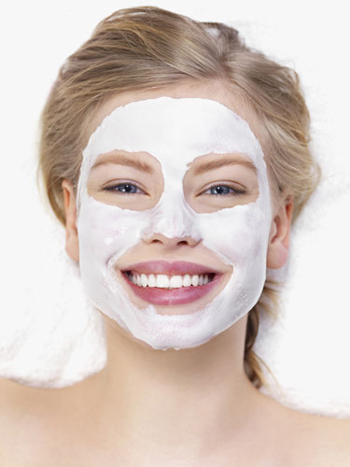 Facial masks are fun but only use them once a week at mostCourtesy of www.collegefashion.net
Facial masks are fun but only use them once a week at mostCourtesy of www.collegefashion.net
The 411 on Acne
About 80% of teens deal with some sort of acne, according to a report by the American Academy of Pediatrics — an organization of 66,000 pediatricians across the US who study children’s health. Some people are more prone to acne than others, and a lot of it is decided by your body’s chemistry and your genes (thanks, mom and dad), but mild acne is easy to treat and prevent with a good skincare routine.
Acne is caused by hormones that release sebum — an oily, fatty substance that coats your skin. The sebum gets mixed with dead skin and dirt to block your pores. That, in turn, causes breakouts. While you can’t do much about your hormone levels, you can do a lot to clear the dead skin and dirt. But be warned, it’s possible to overdo it when it comes to skin care.
The most important thing to do when you find a pimple, blackhead, or whitehead is NEVER PICK OR POP A PIMPLE. While it may feel satisfying and may look better in the short term, it will take a lot longer to heal, may lead to infection, and may cause scarring. If you have a breakout, hold a warm, wet towel over the area for a few minutes in the morning and at night to reduce swelling and soothe your skin. Clean your skin well with a gentle cleanser and toner, and ask an adult to recommend the right medication to use to treat the spots.
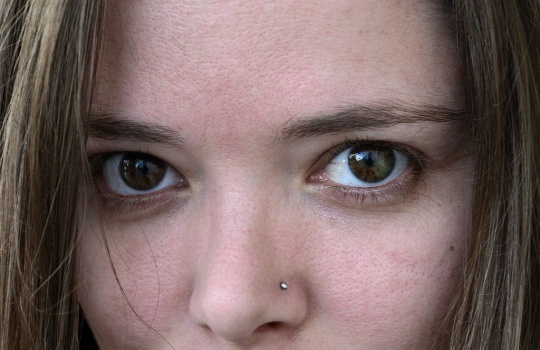 Others probably don't see the small pimples you obsess overCourtesy of Alvesgaspar via Wikimedia Commons
Others probably don't see the small pimples you obsess overCourtesy of Alvesgaspar via Wikimedia Commons
Dark Circles
Dark, puffy circles under your eyes can be caused by lack of sleep, stress or allergies. In allergy season, dark circles are sometimes called an allergy mask. If you have dark circles, there are a couple of fun, natural remedies you can try. Make a nice cup of chamomile tea for yourself with two teabags and set the bags in the refrigerator to cool while you enjoy your cup of tea. Lie back and place the cooled chamomile teabags over your eyes and relax for 5-10 minutes. Not a fan of tea? No worries. cool cucumber slices can also do the trick! The effect may not be immediate, but try it every day for a week and you may see a noticeable difference!
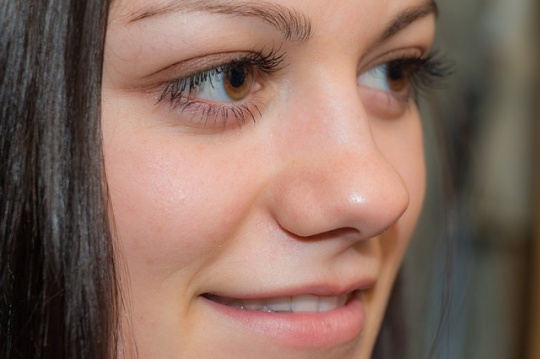 Dark circles can be caused by allergies or lack of sleepCourtesy of Max Pixel
Dark circles can be caused by allergies or lack of sleepCourtesy of Max Pixel
Combination Skin
Does your skin seem oily in some places and dry in others? You’re not imagining things! You have combination skin. Most teens have oily skin around their T-zone -- an area that covers the forehead, nose, and chin -- and dry or regular skin everywhere else. Using a normal cleansing routine should clear up your skin within a week.
Shiny Skin
Throughout the day, your face may take on a certain "glow" -- a nice oily sheen that looks good on pizza but bad on your face. Oil blotting papers are a nice quick fix to blot excess oil during the day. They come in small packs you can keep in your pocket or pencil case. Each sheet is good for one use. You can get them scented, unscented, or with a hint of powder coverage for extra blotchy skin.
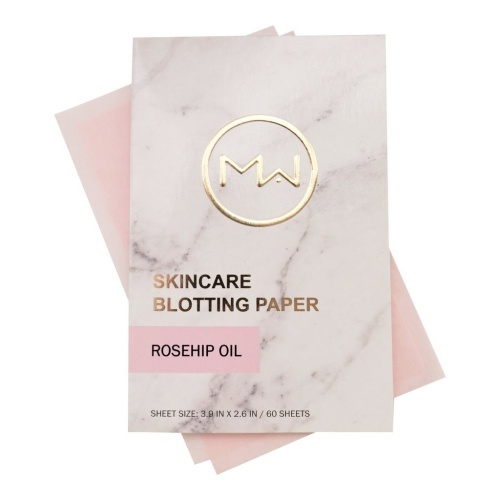 Rose Hip Oil Blotting PaperCourtesy of Mai Couture
Rose Hip Oil Blotting PaperCourtesy of Mai Couture
Rashes
Skin can get irritated by foods you eat or skin care products you use. Tanning beds can not only cause rashes and blotchy skin, they can also cause a lot of long-term damage and are not recommended for teens. If you have an itchy rash or blotchy spots appear after trying a new product or food, check the ingredients and show your parents or doctor to figure out what is triggering it and how to help it. Never try to treat a rash or breakout with medication or anything except a warm, wet towel to soothe your skin and reduce swelling, without consulting an adult first.
Have Your Say
Do you wash your face in the morning and at night? Share your skincare secrets!




























